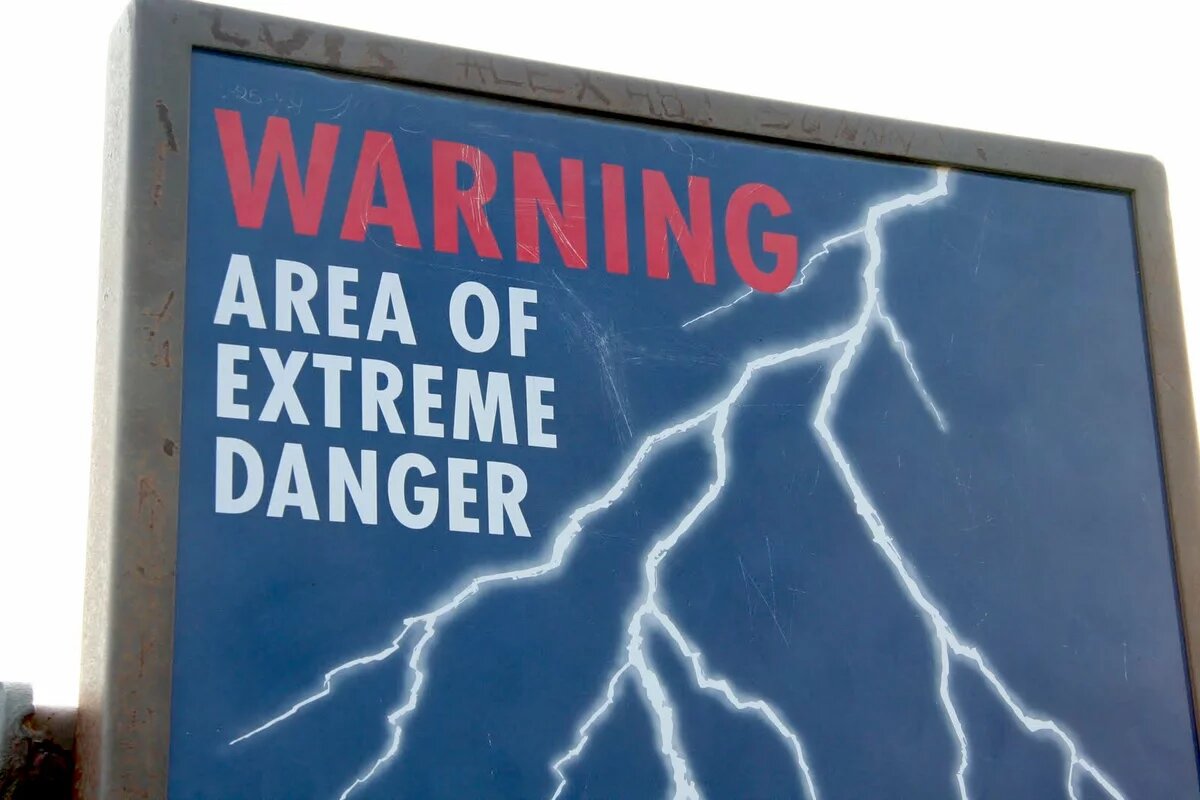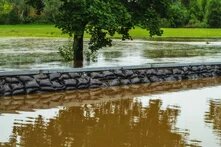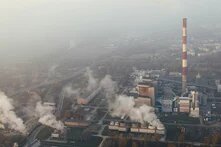In the battle against climate change the Global South has a lot to teach and give. Yet its voices and contributions are significantly underrepresented and consistently ignored by the dominating Global North in imperialist fashion.

Warsaw, November 2013. A bespectacled, black-haired man speaks at a historic conference on climate change, and announces that he is going on hunger strike. Typhoon Haiyan, which many scientists would claim to be the most intense typhoon in recorded history, has just made landfall in his hometown of Tacloban in the Philippines. Through tears, he manages to say that he has found out that his brother survived the storm—attendees aware that he also has a wife and children can surmise that he is not yet certain whether they live. He calls for more aggressive measures to tackle climate change and prevent the resultant extreme weather events. Controversial initiatives such as climate reparations paid by developed countries to developing ones should be on the table.
The man is Naderev “Yeb” Saño, head Philippine delegate to that year’s United Nations Climate Change Conference. He will later find out that his immediate family has survived. The final death toll in the Philippines will exceed 6,000.
Other delegates at the conference join the hunger strike. Prominent news outlets such as CNN and The Guardian feature Saño, at least for a few days.
The Philippine government finds Saño’s behavior unprofessional, and quickly recalls him to Manila. A disillusioned Saño leaves government service and becomes leader of his own organization for environmental protection. Every year or two, the Philippines is hit with another supertyphoon, albeit not quite at the scale of Haiyan. Its hardships with extreme weather events never feature as prominently again in international news, and none of its climate activists reach the same level of global prominence as Saño did on those fraught days in Warsaw.
Fast forward to 2022. Greta Thunberg is a household name. Fridays for Future marches are so institutionalized in some parts of Western Europe that they continue despite the Coronavirus pandemic. Whereas climate-friendly consumer goods used to be special cases, the rapid proliferation of supposedly-sustainable food, clothing, and household products has prompted suspicions of corporate “green-washing.” Standards for sustainable production have risen, and companies are pressured to catch up.
It feels as if the world is only now waking up to climate change—but largely because it ignored Yeb Saño and other activists from the Global South who have been warning us about climate change for years. Contributions from the Global South have been offered, and disregarded, long before 2013, and continue to be underappreciated in global climate protection efforts. The recent cropping-out of Ugandan activist Vanessa Nakate from an Associated Press photo of young climate leaders (with Ms. Thunberg in the center of the frame, of course) shows that the international community still has a lot of self-reflection left to do on this matter. While the Associated Press employee who cropped the photo claimed to do so for “compositional reasons,” finding the skyscraper behind Nakate to visually disruptive, the fact that Nakate herself wasn’t considered worth including in the picture, full stop, speaks volumes about unconscious bias in climate-related journalism, and journalism more generally. For his part, Saño is now Executive Director of Greenpeace Southeast Asia, and arguably is having more scope for his climate advocacy now that he is working outside state channels. However, his greater influence has not resulted in increased exposure. Greenpeace is still popularly seen as a “Western” organization, which makes the news due to its more sensationalistic activities—almost always performed by white activists.
Besides comparing the differential treatment of individual leaders, we can examine tendencies towards marginalization on the level of entire movements. Extinction Rebellion has been criticized for its emphasis on tactics that are less feasible for anyone who isn’t a white, middle-class-to-affluent citizen of a First World democracy. Getting into confrontations with law enforcement can be downright dangerous for foreigners, minorities, or those whose situation might be deemed precarious. Climate activists working under unstable or oppressive regimes are increasingly at risk—human rights NGO Global Witness reported 227 killings of environmental activists worldwide in 2020. While we celebrate the contributions of activists in relatively free liberal (and usually Western) democracies, this shouldn’t overshadow the need to uphold the safety of activists in riskier circumstances.
Of course, it isn’t Greta Thunberg’s fault that Vanessa Nakate gets comparatively ignored. Indeed, the two ladies equally shared credit on the open letter to the media they co-wrote and published in TIME on October 29, 2021. It isn’t Extinction Rebellion’s fault that non-Western climate protection movements or individual activists of color get sidelined. More self-reflexive activists are well aware of their movement’s limited diversity. Rather, we should all be more cognizant of how our deep-seated biases warp our efforts to both measure and address climate change.
When predominantly non-white populations of developing countries do show up on the international climate change agenda, their presentation is so problematic that one wonders whether invisibility would have been better. NGO’s purporting to help them tend to present them as rescue objects needing funds, food, and shelter. Or they are displayed in full “tribal” regalia, as avatars of communal tradition, mystical harmony with nature, etc. (“Display” is a key term here: indigenous communities feature often in NGO publicity materials, but rarely get to speak to a global audience directly.) In short, visibility tends to come at the price of being trotted out as either helpless victim or noble savage. Neither role is conducive to being taken seriously on the world stage.
Global movements for more environmentally friendly food production are a case in point. Efforts to farm in a way that preserve natural habitats are laudable, especially since agriculture is one of the leading sources of CO2 emissions. The European Union implements ever-stricter regulations about farming and food production. But what about countries who still struggle to achieve food security? How can they render their agriculture environmentally sustainable, when such methods often result in lower yields and higher prices? Actually, food production, while an enormously important issue in its own right, is part of the larger issue of sustainable development, which has a different impact on countries at a pivotal stage in their industrial development. Besides feeding themselves, how are these countries to improve their technology, infrastructure, and manufacturing capabilities while facing pressure to keep their emissions low? Prevalent narratives that romanticize poverty, or assume that people in developing countries are more accustomed to a subsistence lifestyle, tend to silence such concerns. Would these narratives hold up for long if “traditional” or “vulnerable” populations could speak for themselves on their own terms?
Those who are at the forefront of climate change’s effects also need to be at the forefront of its solutions—not simply as figureheads, but as leaders and experts in their own right. All too often, the people who can’t attend the high-level events are exactly the people we need to hear from the most. For too long, warnings about climate disasters were not considered sufficiently urgent, and calls for climate reparations were dismissed as divisive. In ignoring urgent climate advocacy from the developing world, the international community wasted precious years that could have advanced the shift to sustainable energy.
As restrictions on travel and large gatherings lift, let us not forget the advantages of gatherings without borders or geographic centers. We have discovered that it’s quite possible to have productive events that are hybrid or entirely online. There are no more excuses for leaving people and communities out of decision-making, just because they are too far away, couldn’t obtain a visa, etc. People from under-appreciated communities or regions can contribute their expertise and debating points, not just their suffering. Governments, NGO’s, and grass roots movements advocating for global climate protection efforts might want to look deeper into the implications of their roles as leaders, donors, teachers—saviors, to put it bluntly. And in peeling back the skin of a newborn movement, they might find the bones of a never-quite-dead ideology. Recognizing that the former “Third World” has something to teach and give might be imperialism’s last frontier.
The author would like to thank the Student Think Tank for Europe-Asia Relations (STEAR) and Humanitarian Affairs Asia, for inviting her to co-Chair a committee at their recent Model United Nations conference, thus helping to inspire this piece.


